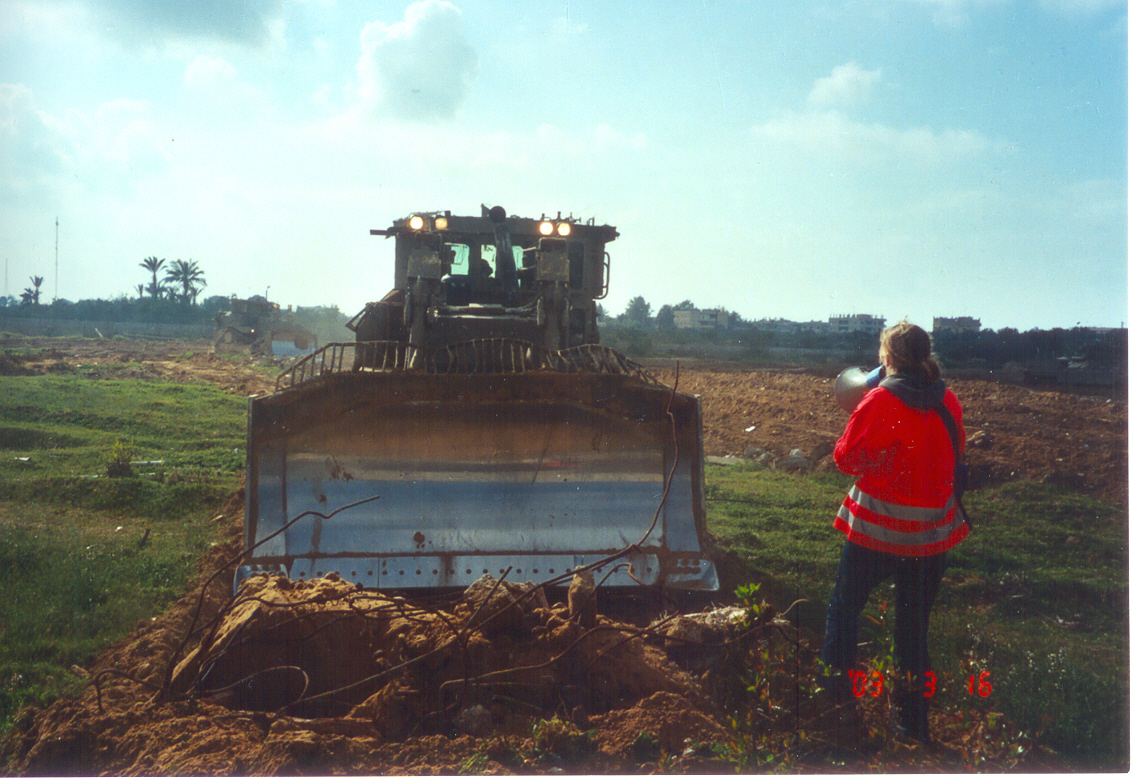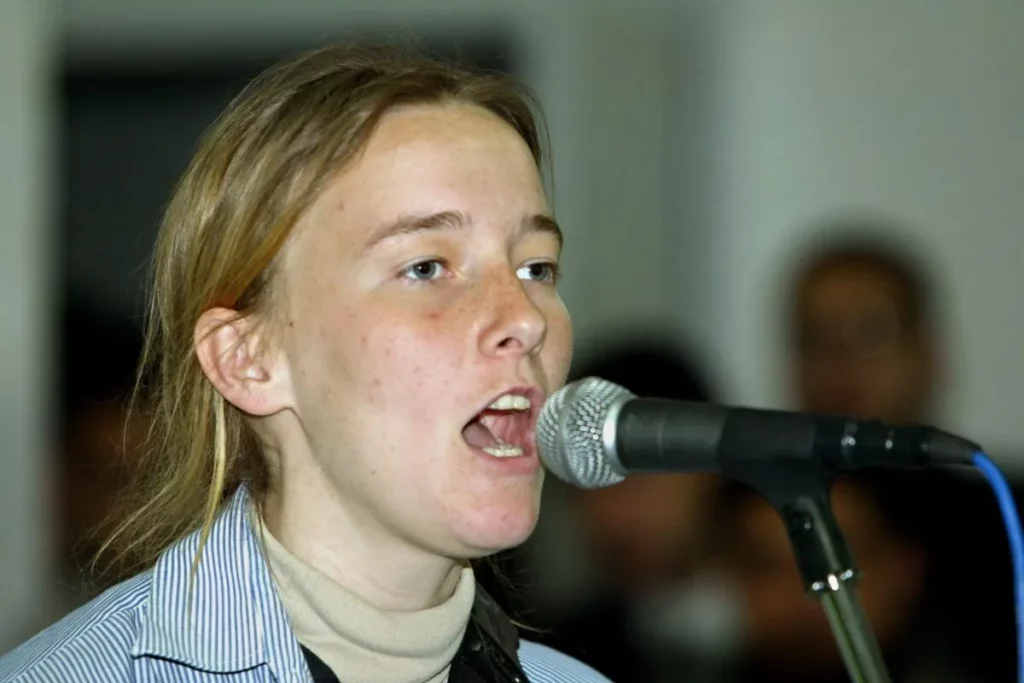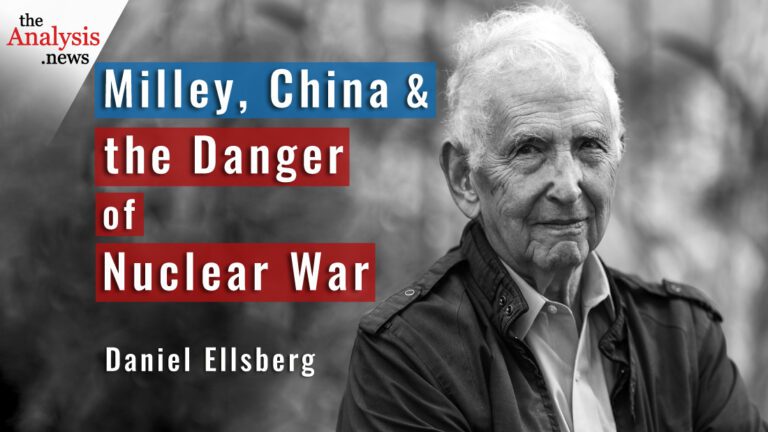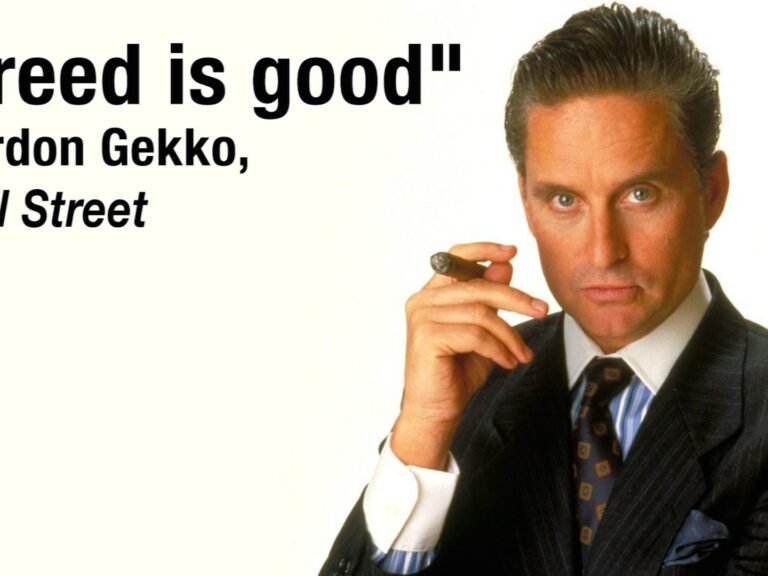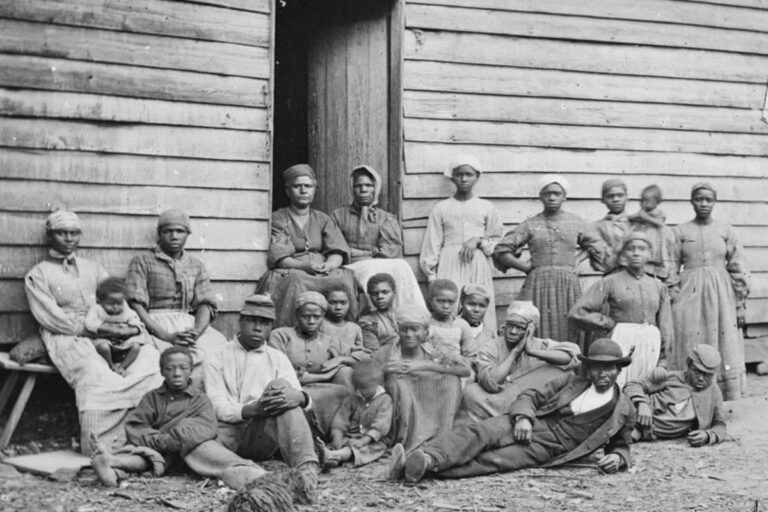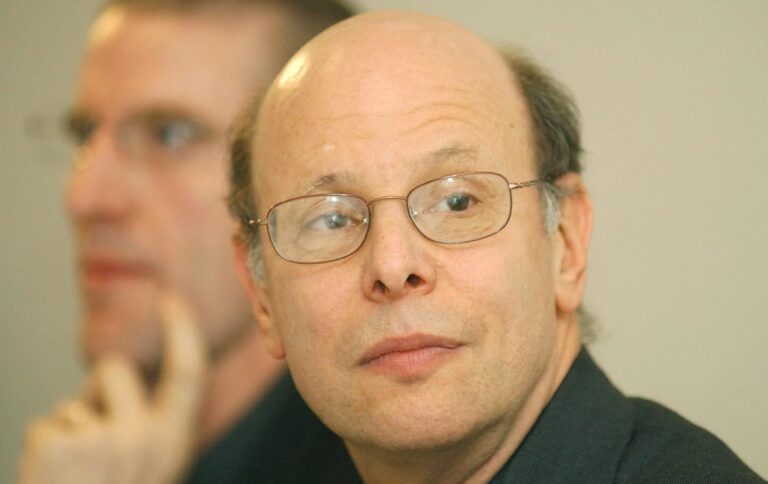This is an episode of Reality Asserts Itself, produced March 27, 2015. On Reality Asserts Itself, Craig and Cindy Corrie tell Paul Jay, “people find hope in the work that we’re doing and in the fact that Rachel was there that day, and stood against what was happening to all of those families in the Gaza Strip”.
PAUL JAY, SENIOR EDITOR, TRNN: Welcome back to Reality Asserts Itself on The Real News Network. I’m Paul Jay. We’re continuing our discussion with [Craig] and Cindy Corrie, the parents of Rachel Corrie, a solidarity peace activist who was killed in Gaza helping defend a house that was about to be demolished by the Israeli army. That was on the 16 March, 2003, 12 years ago. Thanks for joining again.
CRAIG CORRIE, THE RACHEL CORRIE FOUNDATION FOR PEACE AND JUSTICE: Thank you.
JAY: Rachel was someone that seems pretty early on didn’t accept the official narrative of things. Did she get that from you? And you fought in Vietnam, Craig. How much of that changed the way you accepted or didn’t the official narrative of things?
CRAIG CORRIE: Well, I think, yeah, it does go back, I think, in our lives, if we go back at it. But our family, Cindy and I with our kids, I think talked about issues of the day. Our daughter, Rachel, she went to a particular grade school that we had helped found as an alternative school in the public schools. And they tried to look at–they said that children weren’t preparing for life; they were already in their life, and they were part of the community, and the community was part of the school. And then they defined the community as the whole world. So Rachel at a very young age was involved in all that. And, of course, I had some experience in Vietnam and lived through the ’60s. But, for instance, in 1970 I was with the First Air Cavalry in Cambodia. So while students are being shot at Kent State, I think protecting my life–you know, I understand they’re protesting where I was, but I thought they were supporting me, my views, certainly–there I was in Vietnam. And that was just a sad situation to be in. You learn a few things. You will protect yourself and your buddy, even though you don’t really have anything against the person who’s shooting at you. I’m in their place. They weren’t coming to Iowa to get me.
JAY: What were you doing?
CRAIG CORRIE: Strangely, I was a combat engineer. So that meant, among other things, that I was, for times, responsible for bulldozer operations. So I can tell you for one thing you are responsible to know what’s in front of that blade. Now, we were pushing down trees and stuff in the jungle, not somebody’s homes. We were making firebases in Cambodia or right inside Vietnam [incompr.] And another sort of interesting thing about that: when I flew over, my parents had–in their home they were sponsoring the son of a colonel in the South Vietnamese Army who had sort of formed the local militias. That was his idea. And I was reading on the plane, literally, this man’s treatise for their war college. And he was saying that to win, South Vietnam had to have U.S. materiel but could not use U.S. soldiers, because we would be viewed just like the French were, which was all true. But I’m flying over there learning that. And, of course, it translates fairly closely to the way people in Gaza–I don’t know what I’m trying to say here. But in a sense, of–the trouble with trying to impose U.S. power abroad–you know, we really can’t–even if you come with the best of intentions, you can’t do that well. I’m reminded–and I’ll–it’s–quickly here, but I talked to an Israeli soldier once who said he was in Gaza, and for a particular period of time, a day or two, they were not supposed to engage with anybody. So they were trying to hide, sort of, walking down streets from the population. And he said a little child, like, a three-, four-year-old child, came out of the alleyway and saw them and just started screaming. And then he realized he was being violent simply by being there. He didn’t have to do anything. He didn’t have to wish ill on anybody. Just by his presence in Gaza he was being violent. And so I don’t know how much of that Rachel would have picked up from me, but that’s [crosstalk]
JAY: How much did you talk to her about your Vietnam experience?
CRAIG CORRIE: Very little. Very little. I remember after she was killed we were–just in days we were in D.C., ’cause we were trying to come up here. Our son lived here in D.C. And we were trying to work to get Rachel’s body back, and we thought we’d fly from D.C. to bring her back. But anyway, we were giving a press conference next to the Cannon office building with our congressman–Congressman Brian Baird at that time–and people had told me, you have to talk about being in Vietnam. And getting medals, you know, it kind of gives you creds on the hill. And so I pulled that out. And my son’s watching behind me. And right after I got off of the air, I went back and I said, I’m sorry I never told you about that. But when I was a kid right after World War II, boys would bring their fathers’ medals in to show and tell, and that’s what a hero was. And I said, I never wanted you to think that’s what a hero is made out of. And he kind of laughed. And he says, you don’t have any problem with that now, Dad. So, no, you know, I didn’t in that sense.
JAY: ‘Cause Rachel is.
CINDY CORRIE, THE RACHEL CORRIE FOUNDATION FOR PEACE AND JUSTICE: I’m sorry?
JAY: I said Rachel is–was, is a hero.
CINDY CORRIE: Well, we think of her, of course, still as our daughter. And we miss her. She’s very much present in the work that we do and inspires, I think, the work that we do. And we do it for ourselves now as well. You have to believe in what you’re doing to sustain this as long as we have. But I find myself stopping at certain points and thinking, well, how would she think about this, or how would she feel about some aspect of what we’re doing. I think that she has come to represent the injustice of what’s happening there, for a lot of people in the world, particularly because for Palestinians, we work hard to get Palestinian voices now out into our community and elsewhere. But it’s been so almost impossible for Palestinians to pursue justice, for instance, in the Israeli courts, as we did. And I think because we have been able to go down that path, and because Rachel’s–was a writer and had something to say to the world in her own voice, even after she was killed, I think that she has come to represent that injustice to a lot of people. And I think that from what I hear and I hope, you know, people do find hope in the work that we’re doing and in the fact that she was there that day and stood against what was happening to all of those families in the Gaza Strip.
JAY: I can’t help but affect you, and I’m sure you’re aware, that it took the death of a young white American girl to pierce the media on this. And we’re aware of this in Baltimore, where we are. You know, two to three hundred black people are killed every year in Baltimore. And it’s just–in terms of the media, it’s just another number, another name. It’s a completely different story if it’s some young white person gets killed. It’s the same parallel,–
CINDY CORRIE: It is.
JAY: –and that you can have Netanyahu come and address Congress after killing thousands of people in Gaza, and it’s all kind of people are so dehumanized in the American media that it’s considered, oh, people can buy collateral damage or whatever you want to call it.
CINDY CORRIE: Yes.
CRAIG CORRIE: Yeah. I think these issues are connected. I’m reminded of we went a few years ago to the West Bank and Gaza with a group. And a parallel group was a group of African heritage, though I’m–. So we were around each other at dinner and things. And before we left, this guy is telling me, you know, I work on the South Side of Chicago; why should I go halfway around the world to find somebody that needs to have attention paid to getting their rights when I’ve got all the work I can do in Chicago? And I say, you know, I kind of agree with you. You do have a–. But what you have to understand: they’re connected. And what we’re talking in one place is the same thing somebody else was talking about in the other. And we need to support each other. I hate to use a military analogy, but it’s kind of like we’re all just working on different fronts of the same war. And we are working together. And I–yeah, I believe if it takes a blonde-haired girl to bring attention to the dark-haired Palestinian girls that are killed all the time, then that’s the process that we need to go through. And then we need to get on to, as Cindy says, the Palestinians having the voice and being seen. And they’re rich, wonderful people. So they’ll enrich all of our lives if we get to know them, just as that’s true for people in the inner city in Baltimore, Southside of Chicago, or–we’ve worked with indigenous people from Canada, the First Nations people. You know, all these people, we need them all, and we’re just impoverishing ourselves if we don’t let them into our lives.
JAY: Right. What’s been your experience in Israel? You’ve been over there. You’ve been fighting a court case, suing, as I mentioned earlier, the Israeli government, the Israeli military. But in terms of Israelis, what’s been your experience?
CINDY CORRIE: Well, we’ve had extended time there because of the court case. Craig and I, I think, spent about a total of ten months–it wasn’t consecutive, but living inside Israel while the court case was going on, so that we could hear all the proceedings. We were in Haifa most of that time, but also spent time throughout the country. And Israelis, certainly in the peace movement, have been so supportive of us. We in court had to have everything translated for us. Everything was in Hebrew. So members of Combatants for Peace and other activists sat next to us, and for hours at a time were translating from Hebrew to English, whispering it in our ears, sometimes having the judge yell at them for being too loud and that kind of thing. The district court room wasn’t a particularly large space, but on some days, for example, when the driver came, there were Israeli supporters who stood out in the courtroom for hours so that when we came out, they would see that we were there, that they were there in support of us. They couldn’t make it into the courtroom, because there wasn’t room. We just recently, actually, before the Supreme Court oral hearing, when we were in Israel in 2014 (we were there in May and June), the play My Name Is Rachel Corrie was performed in Hebrew in the–it’s an Arab-Israeli theater in Jaffa. And the theater was full. The performance started at 8:30 at night, performed by a Jewish-Israeli actress and a director from Haifa, a Jewish director from Haifa. The room was packed. There were no more seats. There was a panel afterward. A representative of B’Tselem, the human rights organization, was there, Michael Sfard, who has done some legal work for a family much earlier but works with Palestinian cases all the time, was there as a part of it. And they were really there in solidarity with our family, that whole group of people. So that’s a small segment of the country.
JAY: Very small.
CINDY CORRIE: But those people are there for us. And what they’ve told us is, you know, we can’t do it by ourselves, we can’t make these changes happen without all of you out there.
JAY: Just, like, a couple of days before we are shooting this, Benjamin Netanyahu was just reelected prime minister.
CINDY CORRIE: Exactly.
JAY: This is a really small segment you’re talking about.
CINDY CORRIE: Yes, it is.
CRAIG CORRIE: Yeah, it is.
CINDY CORRIE: But they’re so important to us. And when we’re there, you know, I’m–there are some really startling things that I think that–I think Americans who don’t have the opportunity to go there sometimes think Israel looks like things do here. And in some ways there are a lot of similarities. But I know I was really struck in the beginning, when we went there, by how militarized it all is, how visibly militarized it all is. And just seeing how young all these soldiers are, men and women in uniform in Haifa–you know, there are training areas nearby, and in the beginning–less so now, I think, but in the beginning, carrying weapons, when I just couldn’t adapt to the idea that these people were on the trains and on the buses and everywhere around the whole region.
JAY: Yeah, I was there, I guess, about three years ago, four years ago. And I told you before off-camera, I was so struck at the overt racism that I heard. I mean, I kind of asked about it, you know, what do you think of what’s going on in the West Bank or something like that. But the response were just completely unfiltered, virulent racists, from storekeepers to people on the street. I mean, I kind of knew, but not like that. It kind of shocked me, just–.
CRAIG CORRIE: It is shocking. And that’s probably the most overt, obvious part of it. But when you hang around long enough, even without knowing either language that’s spoken there, it’s very nuanced. There’s rankings through the Jewish community, from Ashkenazi and the Arab Jews. And then Ethiopians may be on the bottom of all that. And then you start through the Arab community as well. So it may be Christian Arabs, might be sort of towards the top in a larger city, and to the Muslims that are out in the country. And it’s so unhealthy. You know, it’s kind of hard to figure why anybody would want to get into that sort of thinking. But it’s there, you know, and it’s–in lesser extent, it’s other places. Like, it’s still connected. But that’s a very obvious spot.
JAY: Now, how much has the American mainstream media given you a place to tell your story? Because still mainstream media covers so one-sidedly, I mean, the impression that Israel is the great democracy and so on.
CRAIG CORRIE: I think at times we have some coverage on mainstream media. When Rachel was killed, that was only three days before we did the actual invasion into Iraq. So it very quickly went off the news with that. But there was some coverage at that time. And I think that the mainstream coverage of Israel and Palestine has gotten better over the 12 years that we’re looking at. In 2000–what was it?–2011 or 2012 that we were there in Gaza?
CINDY CORRIE: Twelve.
CRAIG CORRIE: Twelve. In November 2012, we were in Gaza, and there was an attack again, like there is every 16, 18 months, it seems like. And so the bombs were falling the last night we were there. And we were scheduled to go out the next day, and we did. But unlike in Cast Lead, before that, in 2009, where there was absolutely no coverage coming from inside Gaza, when we got out and got back to the States, we could see, there’s Anderson Cooper standing on top of the same hotel that we’ve been, inside Gaza. And I’m not sure that Anderson Cooper understands that situation all that well. But Ben Wedeman does, and he was there with Anderson Cooper. So Anderson Cooper brings the audience. Ben Wedeman brought some understanding. And we would laugh because we’d hear the same sort of thing sort of aired, and then Ben Wedeman would say, well, actually–and whatever he said after that, Cindy and I would agree with. You know. So that’s getting out, and that’s better. I think also just trying to understand people as people and not seeing them as victims is important. And so some of that too is making it into the mainstream media. But there’s a whole lot more that has to be done. And that’s not getting Palestinian voices in. We need to get to the point where we hear from the Palestinians.
JAY: Okay. In the next segment of our interview, we’re going to talk about the quite recent decision by the Israeli Supreme Court about your lawsuit. Please join us for the continuation of Reality Asserts Itself on The Real News Network.
Never miss another story
Subscribe to theAnalysis.news – Newsletter
“Cindy and Craig Corrie are founding board members of Rebuilding Alliance. They are the parents of Rachel Corrie, a young American peace activist who died on March 16, 2003.”
